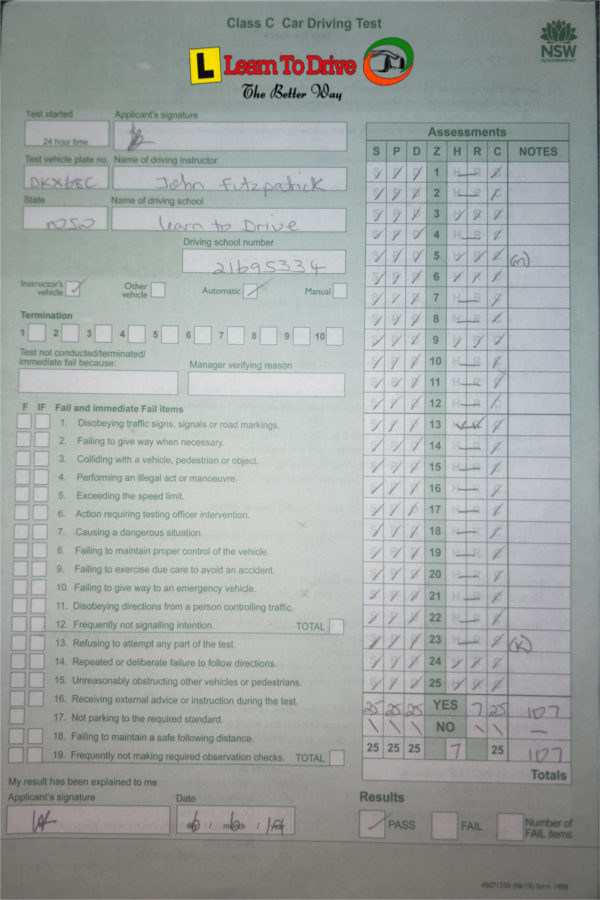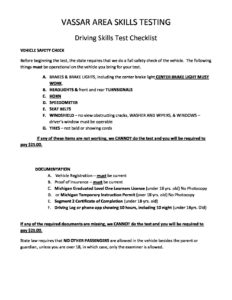
If you haven’t been taught these skills, and you haven’t practiced them comprehensively with an instructor, there’s no point booking your test, because you won’t be at the standard required to pass.
#Practical driving test checklist professional
If you are well prepared, you won’t feel as nervous, and there’s a very good chance you’ll pass your test!Īfter all, you’re only being assessed on your ability to perform driving tasks and respond to traffic scenarios that you should have already gone over with your driving instructor - so as long as you put in the work before the test, there should be nothing to be scared of.īooking yourself in for professional driving lessons will increase your chances of passing the test on your first go, as your instructor will ensure that you’ve learnt everything you need to know and are ready to demonstrate the necessary skills to your examiner. But, just like any other test, it’s important to remember the five Ps - Prior Preparation Prevents Poor Performance. It’s natural to be nervous before any test, and a driving test is no exception.

Of course, these reasons are not unrelated. But perhaps a simpler and more useful way to look at it is that there are two main reasons why people fail driving tests: So those are just some of the things that can cause you to fail your test. In fact, anything that results in your driving assessor needing to intervene, either verbally or physically, will result in an automatic failure. These might not all seem catastrophic, but any one of these mistakes is grounds for instant failure. Making the wrong decision at an intersection.Failing to obey directions from police, a school crossing supervisor, or an authorised traffic controller.Failing to perform a right turn correctly.Failing to leave a safe following distance.Failing to understand or follow road signs and markings.Failing to stop completely at stop signs.

Speeding (exceeding the speed limit by 1 kph or more).These are errors that occur when you don’t follow the rules, including: Then there are the big dogs - Critical Driving Errors. If you commit four or more Specific Repeated Driving Errors, it means you aren’t ready to drive safely on your own, and you will fail your test. Stalling repeatedly also counts as a Specific Repeated Driving Error. Specific Repeated Driving Errors are errors you make repeatedly - like, for instance, consistently failing to shoulder check, or to indicate correctly, or to be in the right position on the road. But if you commit nine or more of these faults, you won’t pass your test.

Non-Critical Driving Errors are minor infractions that don’t endanger your safety, or the safety of other road users. Technically speaking, there are any number of errors that can cause learners to fail the test, which are divided into three categories -Non-Critical Driving Errors Specific Repeated Driving Errors and Critical Driving Errors.

We don’t want to scare anybody, but the reality is, there’s no guarantee that you’ll pass your practical driving test on your first attempt. Here’s what you need to do to pass your driving test with flying colours! It’s good to be confident going into your practical driving test -but it’s also important to be prepared.
#Practical driving test checklist how to
How To Pass Your Queensland Driving Test?


 0 kommentar(er)
0 kommentar(er)
